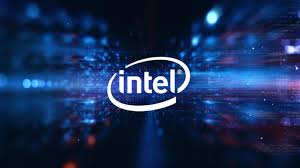
One of the top chip makers of the world Intel is investing heavily in "smart buildings" in Israel where incentives and perks will be galore for employees as the company hopes to attract the bets talent available in the country.
Announcement for building of a manufacturing unit in Israel for $11 billion was announced in 2019 by one of the biggest employers and exporters in Israel – a country that has come to be known for its talent in the technology sector.
There is currently a shortage of talent in Israel, said a report published in the Jerusalem Post, despite country possessing more startups per capita than any other country. This has been possible because of the backing for startups by the country’s military and the government. Tech companies are finding it difficult to spot ne talent in the country even though tech giants such as Intel, Apple and Google have acquired a host of local startups and have created their own research centers in the country.
According to Start-Up National Central, a nonprofit research organization, about 17,000 positions in tech companies in Israel remained vacant in 2018. That number is going up.
Aware of the shortage, Intel has stepped up its efforts to fill its talent gap at its new development center in a Tel Aviv suburb. In order to ensure that the employees at the center are comfortable, Intel has installed 14,000 sensors that monitor motion, light and air in addition to providing facilities such as environmentally friendly systems, a smart gym and a massage parlor.
It is expected that Intel’s rival tech companies would also follow a similar strategy if Intel’s efforts turn out to be fruitful.
"Anything you offer as a perk, whether it's a gym membership or a paperless work environment or additional days for maternity leave or a go-green policy, all of these things are going to help you," said David Gantshar, chief executive of California-based Shepherd Search Group.
It is expected that about 2,700 of the local 13,000 workforce of Intel could be accommodated in its new Intel's box-shaped, 10-story building.
The company did not provide details about what it spend on the facility. Reports in the Israeli media however have put the number at about 650 million shekels or $188 million.
It was a challenge to finish the project within Intel's three-year timetable, David Hareli, deputy CEO of Afcon Holdings, which constructed the building, told the local media. Intel added three floors to the original plan which has seven floors.
Intel had insisted that the new facility should have LEED Platinum certification, the highest standard of green construction, instead of the lower graded gold level, after the singing of the contract with the builder. That meant that the building had to be covered in a double-skin facade that would help in achieving better ventilation and prevent the building from heating up under the strong Middle Eastern sun.
(Source:www.jpost.com)
Announcement for building of a manufacturing unit in Israel for $11 billion was announced in 2019 by one of the biggest employers and exporters in Israel – a country that has come to be known for its talent in the technology sector.
There is currently a shortage of talent in Israel, said a report published in the Jerusalem Post, despite country possessing more startups per capita than any other country. This has been possible because of the backing for startups by the country’s military and the government. Tech companies are finding it difficult to spot ne talent in the country even though tech giants such as Intel, Apple and Google have acquired a host of local startups and have created their own research centers in the country.
According to Start-Up National Central, a nonprofit research organization, about 17,000 positions in tech companies in Israel remained vacant in 2018. That number is going up.
Aware of the shortage, Intel has stepped up its efforts to fill its talent gap at its new development center in a Tel Aviv suburb. In order to ensure that the employees at the center are comfortable, Intel has installed 14,000 sensors that monitor motion, light and air in addition to providing facilities such as environmentally friendly systems, a smart gym and a massage parlor.
It is expected that Intel’s rival tech companies would also follow a similar strategy if Intel’s efforts turn out to be fruitful.
"Anything you offer as a perk, whether it's a gym membership or a paperless work environment or additional days for maternity leave or a go-green policy, all of these things are going to help you," said David Gantshar, chief executive of California-based Shepherd Search Group.
It is expected that about 2,700 of the local 13,000 workforce of Intel could be accommodated in its new Intel's box-shaped, 10-story building.
The company did not provide details about what it spend on the facility. Reports in the Israeli media however have put the number at about 650 million shekels or $188 million.
It was a challenge to finish the project within Intel's three-year timetable, David Hareli, deputy CEO of Afcon Holdings, which constructed the building, told the local media. Intel added three floors to the original plan which has seven floors.
Intel had insisted that the new facility should have LEED Platinum certification, the highest standard of green construction, instead of the lower graded gold level, after the singing of the contract with the builder. That meant that the building had to be covered in a double-skin facade that would help in achieving better ventilation and prevent the building from heating up under the strong Middle Eastern sun.
(Source:www.jpost.com)














